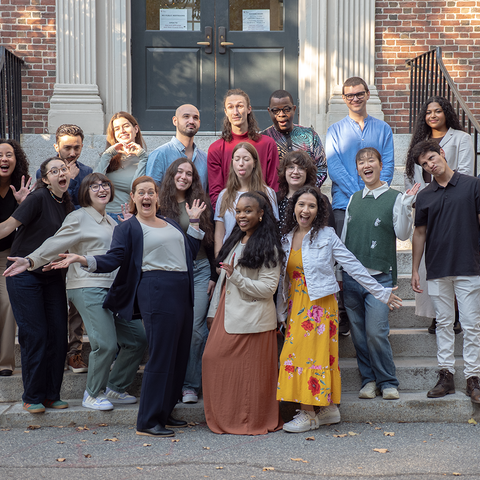B-2 B-Well: A Healthy Approach to Graduate Student Finances
Struggling to make sense of money? These resources can help.

Financial health is one of the most important spokes of the wellbeing framework, especially when you consider the role that it plays in other aspects. For example, many folks say arguments about money negatively impact their relational health. It is hard to feel like your vocational health is balanced when you are working multiple jobs to make rent. Many of the foods, equipment, or resources we need to support our physical health are expensive. The truth is that in our society, financial health is often the keystone to the rest.
That’s why the Financial Aid Office encourages students to connect. They have incredible resources to support financial wellness, some of which you may not be familiar with. “We want to help people feel empowered that they are using their funding packages or are financing their studies in a way that works best for them,” says Rachel Clarey, senior admissions and financial aid officer, who spoke with B-2 B-Well about how the financial aid officers (FAOs) approach their work and what types of issues students bring in. “Linked to that, many students reach out with hypothetical situations about the future. For instance, next year they might teach, or maybe they’re thinking about being a traveling scholar. Working with us and getting information ahead of time helps them plan for the future and what the implications might be for external funding or other concerns.”
Planning ahead can make a big difference in financial health, specifically budgeting. Students struggle with budgets for many reasons—they may not know how to allocate their stipend appropriately or may be dealing with changes in pay structure (i.e., weekly instead of biweekly). Clarey says that here, too, she and her colleagues can help.
“Students should always feel they can come in and discuss what, when, and how much they will be paid so they can make a budget,” she says. “One thing that’s very common is folks reaching out to understand what their paychecks mean, especially as they move on in their program. FAOs are in a place where we can look through the paystubs to help them figure out how and from where they are being paid. We may not be able to answer every question, but at the very least we can try to connect you with someone who can.”
Additionally, if you are struggling to build a budget that works for you, all members of the Harvard community are able to access GreenPath through the Harvard University Employee Credit Union. The program offers expert financial counseling, resources for debt management, free webinars, a financial education library, and more. GSAS FAOs report positive feedback from students who’ve used GreenPath’s services.
When emergencies cause significant financial stress—for instance, unexpected out of pocket medical, dental, or travel expenses—hardship funding may be an option. Not all circumstances qualify, however. If yours don’t, FAOs can help you think about other options, including loans.
“We help students think through what it means to take on educational debt,” Clarey says. “If someone is really struggling and putting money on a credit card that has a high interest rate, it can be good to come in, talk to their FAO, and think about taking out a federal or private loan that may have a lower rate.”
March and April are tax season in the US—a stressful time for many. (“Excuse me? What do you mean I have to file federal AND state taxes?!”) Thankfully, the Financial Aid Office, in partnership with the GSAS Student Council, will offer a tax workshop for international students on March 22 and for US citizens on March 29 with longtime certified public accountant Robert Underwood. International students may also meet individually with the staff of the Harvard International Office and Nonresident Alien Tax Office. Finally, it’s a good idea for all students to check out the tax resources provided by Student Financial Services. You might be surprised by what is considered taxable versus what is not!
As we conclude this month’s article, we want to end by plugging what we think is a student’s best financial resource here at Harvard—the FAOs themselves! They might not be able to answer every question or solve every problem, but they work with students who have been in all kinds of situations, so students should always feel free to reach out.
Remember to be kind to each other and visit B-2 to B-Well!
Banner Courtesy Shutterstock
Get the Latest Updates
Join Our Newsletter
Subscribe to Colloquy Podcast
Simplecast





